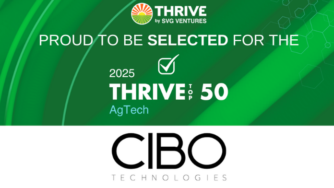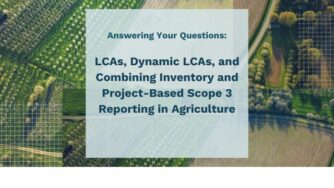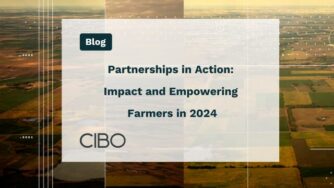This fall, the United States Department of Agriculture (USDA) released a report on “The General Assessment of the Role of Agriculture and Forestry in the U.S. Carbon Markets.” The report assessed the current state of voluntary carbon markets in the United States to see how the country was moving toward using natural climate solutions to fight climate change.
“The Biden-Harris administration is working aggressively to ensure farmers, ranchers, forest landowners, and tribal communities have opportunities to be part of the solution to climate change, all while cultivating new revenue streams and fostering investment in rural communities,” said Agriculture Secretary Tom Vilsack. “This landmark report demonstrates both the potential and the challenges that carbon markets present for agriculture and forestry.”
To help evaluate the market, this report is a general and quadrennial assessment of the state of the voluntary environmental credit market, including the supply and demand of credits, state of technology, barriers to participation, and potential roles for USDA. The report offers a primer on carbon registries and the various markets developing in this area. It explores compliance markets such as California as well as voluntary carbon markets. The assessment found that carbon credits can be a tool to reduce greenhouse gas emissions and generate revenue for farmers who adopt practices that reduce emissions or sequester carbon and help companies achieve emission goals.
The report points to a study by Trust in Foods showing that 93% of livestock and crop managers are aware of carbon markets, but only about 3% right now participate in them. While forestry has the dominant number of carbon credits, only about 1% of landowners have participated in them.
Producers see barriers as “limited return on investment as a result of high transaction costs” as a main issue as the credit prices are not enough to cover the costs of “quantification, verification and reporting.” Early adopters have run into issues over strict permanence requirements for credits. There’s also simple confusion over options and demand for carbon credits in general.
The report discusses how CIBO, SALUS, and Verra are helping organizations grow their carbon reduction programs through sustainable programs. Although we recognize the challenges the report lays out, CIBO is excited to be at the forefront of helping the agriculture space overcome them with our innovative technology. The CIBO Programs Engine, mentioned in the report, is helping carbon program sponsors, growers and their trusted advisors build and participate in effective programs that create impact on our climate.
Building Sustainable Programs
Enterprises are looking to increase their grower network participation in carbon reduction and regenerative agriculture programs. That’s where CIBO can help. The CIBO Programs Engine equips organizations to rapidly develop, deliver and manage all types of practice incentive, regeneration and carbon programs for their growers. Whether reducing Scope 3 emissions, generating carbon offsets or sourcing regenerative or low-CI grain, the CIBO Programs Engine simplifies the process for sponsors and growers alike.
Define, Deliver and Manage Programs from Prequalification Through Payment:
- Prequalify Land & Understand the Potential Return: Growers and their advisors simply upload or draw field boundaries and verify CIBO-sensed practices to instantly understand eligibility for incentive programs.
- Simplified Program Enrollment: CIBO provides convenient workflows and scaled data to make enrollment fast and painless.
- Monitor Status & Generate Income: Growers see more with CIBO. Instantly view program and payment status. Program participants get paid as practices and/or carbon are verified.
- Automatically Prequalify for New Programs: As new incentive programs are deployed, fields will automatically run through prequalification.



